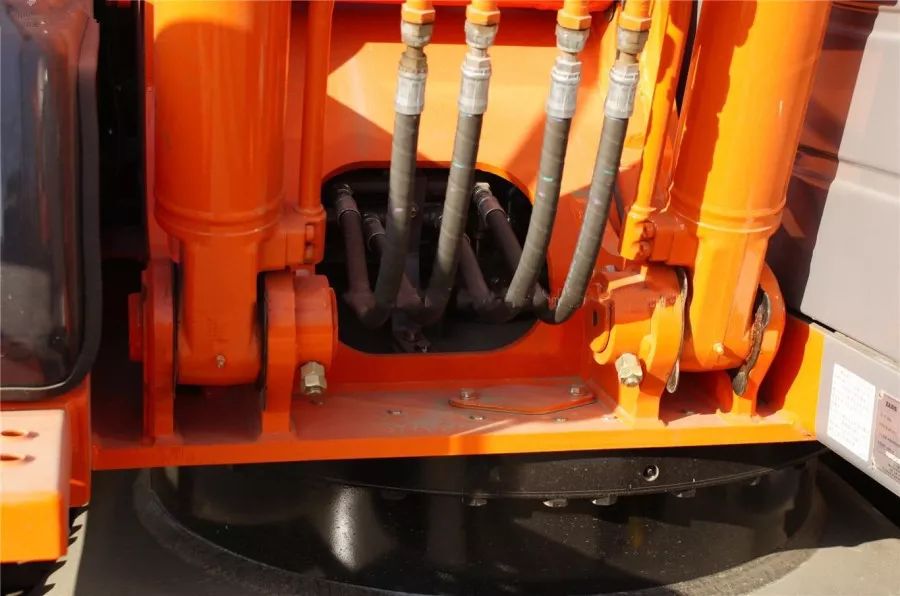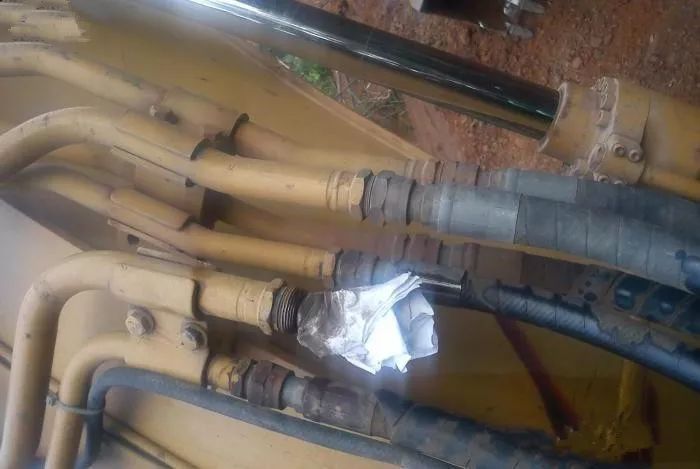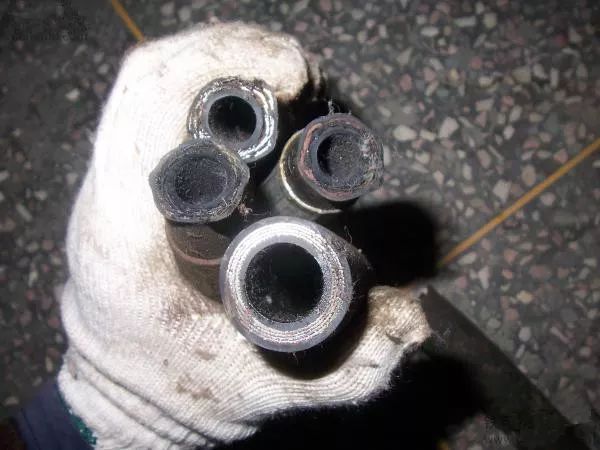 HuiTong
HuiTong  2025-06-13
2025-06-13
The bursting of the excavator hydraulic hose is a headache for many excavator masters. Because the bursting of the pipe will cause the leakage of hydraulic oil, the subsequent maintenance is time-consuming, labor-intensive and expensive. So what are the common reasons for hydraulic pipe bursts? After the pipe burst, will it be dealt with to minimize the loss?
Common Causes of Hydraulic Pipe Bursts
1. The use of inferior excavator hydraulic hose
After the original excavator hydraulic hose is damaged, many people choose low-quality hydraulic pipes that are not up to standard in order to be cheap. The performance and reliability of this excavator hydraulic hose are far inferior to the original ones.
In addition, the withholding process of the metal joints at both ends of the excavator hydraulic hose is poor, and the sealing and reliability cannot be guaranteed. After a period of use, it will save fuel and even leak. Therefore, when replacing hydraulic pipes, you must choose products from regular big brands.

2. The hydraulic system pressure is too high
If the preset pressure of the hydraulic system is too high, it will increase the probability of pipe bursting. The method is to test the pressure value generated by the main pump in combination with various actions. If it is confirmed that the pressure value is too large, the pressure of the multi-way valve can be appropriately lowered.
3. Hydraulic oil temperature is too high
If the hydraulic system of your machine is high temperature, it will also affect the sealing of hydraulic components and cause tube burst leakage; in addition, the high temperature will also expand the hydraulic components, causing the valve core and valve body to be stuck, resulting in local high temperature and tube bursting.

4. Mix hydraulic oil of different grades
Excavators generally use 46# hydraulic oil by default when they leave the factory. If you add 68# hydraulic oil that is common in parts stores during use, it will cause the hydraulic oil to be unstable and damage components. High-viscosity hydraulic oil has poor fluidity, which will cause high pressure locally in the hydraulic system, which is easy to cause pipeline leakage.
5. Bad operating habits
If the operator operates rough during the operation, the huge impact load will generate instantaneous impact pressure in the hydraulic system, and the impact pressure will cause premature failure of the pressure joint of the high-pressure oil pipe joint and the rubber hose, oil leakage or pipe explosion, which greatly shortens the hydraulic pressure. the service life of the tube. In addition, rough handling can also affect the durability of other components, resulting in frequent mechanical failures. Therefore, the action of operating the excavator must be gentle, and no high-intensity and high-risk actions should be performed.
6. The excavator hydraulic hose is corroded
Although most of the current hydraulic pipes have a certain degree of corrosion resistance, after all, long-term contact of rubber products with diesel will make the colloid fluffy and deteriorate. It will cause certain adverse effects. Try not to let the hose contact gasoline and diesel. Generally, the rubber will swell and become fluffy when soaked in gasoline and diesel for a long time. Therefore, in normal use, corrosive liquids such as diesel oil should be avoided from contacting the hose, and the outer surface of the excavator hydraulic hose should be cleaned frequently.

7. Abnormal vibration of excavator hydraulic hose
I posted that the gear pump and the plunger pump have oil pulsation when they work. This pulsation will cause high-frequency vibration of the hydraulic pipe, and this high-frequency vibration cannot be completely eliminated. Long-term abnormal vibration will cause fatigue and wear of hydraulic pipes. Therefore, it is necessary to check the pipe clamps and protective sleeves of hydraulic pipes frequently. Once the pipe clamps are loose, the excavator hydraulic hose will be worn out, or even worn out.